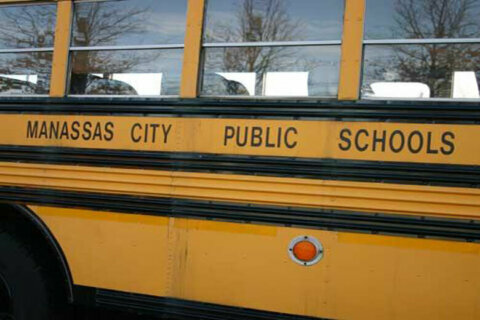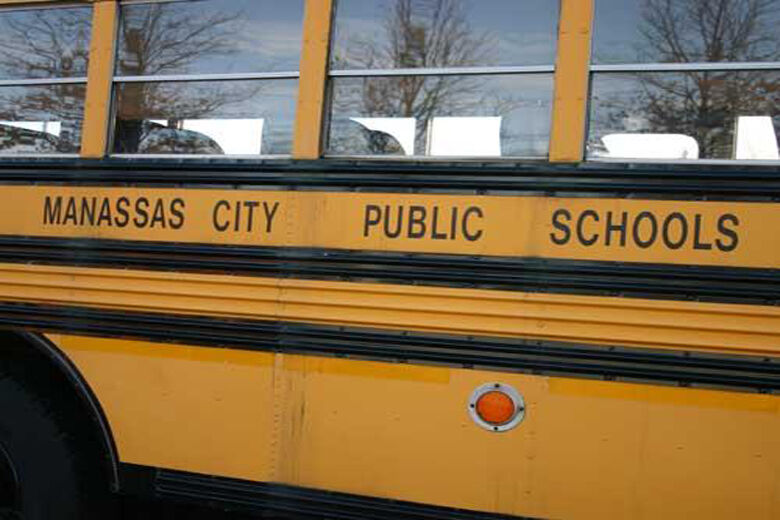This article was republished with permission from WTOP’s news partner InsideNoVa.com. Sign up for InsideNoVa.com’s free email subscription today.

Members of the Manassas Education Association union have voted unanimously to begin a collective bargaining campaign, the first step to implementing collective bargaining in the division.
Since the February vote, several association members and community members have spoken about collective bargaining at Manassas School Board meetings.
At the board’s March 25 meeting, Manassas resident and former United Airlines employee Tim Plevniak spoke about his experience with the union he was part of during his time at United.
“I have to say, the union did some really good things for me, but when push came to shove, my union abandoned me,” Plevniak said. “Come COVID time, there was a mandate for vaccines at United Airlines. All employees were required and … I could not do it. I tried for an accommodation, which I could not get, and I was terminated from United Airlines. The union did their song and dance, but when it came to it, they just let me go.”
Rather than allowing collective bargaining to happen, Plevniak said, the School Board should aim to provide for teachers – and students – without a collective bargaining agreement.
Robyn Williams, a former School Board member who ran for a seat on Manassas City Council last November, also spoke out against collective bargaining.
“It’s important to present evidence highlighting the negative impacts on student achievement, particularly for English learners, low-income and special education students,” Williams said. “While some studies suggest that collective bargaining has a positive effect on standardized test scores overall, much of the research indicates no significant impact or negative effects on student achievement, particularly for vulnerable student populations.”
Williams said a collective bargaining agreement may impose constraints on administrative decisions regarding teacher assignments and transfers and impose provisions to protect underperforming teachers.
Supporting safeguards
Other Manassas residents have spoken out in support of collective bargaining. At a March board meeting, Manassas resident Sarah Cook spoke about her experience growing up in a union household and the benefits it provided.
“Collective bargaining prevents teacher burnout, which is one of the main reasons why 44% of teachers leave the field within five years,” Cook said.
Unionized divisions dismiss more “low-quality” teachers while retaining the “high-quality” ones, Cook said, and collective bargaining improves both staff retention and student achievement across all income levels.
“Currently, low-pay, challenging working conditions and inadequate support are driving teacher and staff turnover and harming our students,” she said. “Our children are suffering the consequences.”
The law permitting collective bargaining in Virginia went into effect on May 1, 2021. The measure, Manassas Education Association President Anna Demeria said, is “extremely vague” and complicated. Given this, she said, the local union focused on building up membership and waiting to see how things go with collective bargaining in the state before making the decision to start the process in Manassas.
Since the most recent local, state and federal election cycle, however, Demeria said she and other union members felt they needed to take action.
“With this past election, a lot of us are very concerned about what the future of public education looks like, even within Manassas city,” Demeria said.
Demeria, a fourth-grade homeroom teacher at Baldwin Elementary School, grew up in the Manassas school division. While she said the union is “comfortable” with the School Board and Superintendent Kevin Newman, she feels now is the time to put in place more safeguards.
“We know everybody has the best interest of children at heart, but we have kind of reached a point where … we need safety for our staff, our teachers, for our other educators, bus drivers, clerical staff, IAs, custodians and, most importantly, for our students,” Demeria said.
Voting to begin a collective bargaining campaign is just the first step in a long process, which Demeria said can take up to two to four years.
The association has formed an organizing committee, made up of different members from work sites across the division.
“Right now we’re just trying to talk to the members, see what are some issues and concerns that are deeply and widely felt across the division … and just kind of see what they would like to see happen,” Demeria said, adding that while pay is something people are concerned about, it’s also about working conditions overall.
The next step in the process is what Demeria called a “card campaign,” where members and other division staff who are not members sign on to say they want the association to represent them in negotiations.
Ultimately, collective bargaining would need to be approved by the School Board through a formal resolution in order for those negotiations to happen.
Job security and stronger protections for staff are some of the most important factors Demeria said she’d like to see in a potential contract. For example, she’d potentially like staff to have the right to have a silent witness in any meeting where they are possibly being disciplined or reprimanded or that would affect their evaluation.
Ultimately, though, Demeria said as president her job is to represent what all members of the association want.
“Whatever my members want to push for is what we will push for,” she said.








